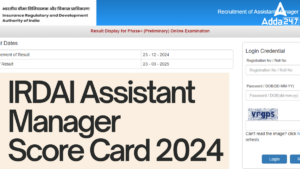Dear Aspirants,
Vocabulary is an important part of English that helps you deal with all kinds of questions in objective as well as descriptive papers of various exams. In the recently concluded SBI Exams, we witnessed that a major part of the exam was based on vocabulary. Many questions were vocab based and we can expect the same in the upcoming exams. It becomes very important to learn ample amount of words for the upcoming IBPS Exams. You can learn new words daily from our Daily Word List . Here is a list of words from the Hindu Editorial. Learn the words and make your own sentences on the basis of the given word list.
The nature of dissent
Dissent is necessary not only for democracy — it is necessary for the survival of the human race
Disagreeing with each other is a fundamental human trait. There is not a single individual who does not disagree with something or the other all the time. Philosophers argue that a baby meaningfully attains its sense of the self — its recognition of ‘I’ and the concept of ‘mine’ — when it first begins to say ‘no’. At a primordial level, we become individuals only through this act of stating our disagreement. There is no family without dissent between parents and the children, or between the siblings. A family which learns to deal with dissent rather than authoritatively dismissing it is a more harmonious family.
A way of being
We dissent at home, with our friends and with our colleagues in the places we work. It is through these ways of dissenting that we establish a relationship with them. Our relations with our friends are based as much on how we learn to live with our disagreements as on other things. The relationship between spouses is filled with many moments of disagreement. If our friends and family consist only of those who agree with us all the time, then we will not have any friends and family. Learning to live with others, the first requisite for a social existence, is about learning how to live with them when they disagree with us.
Dissent is so ingrained in us that we don’t even need others to disagree. We constantly disagree with ourselves. We argue with our own selves all the time as if each one of us is an individual made up of many selves. When we think, we are often dissenting with our own selves. When we stifle dissent within our own minds, we stop thinking. Many of our meaningful acts also occur from this dissenting conversation of our many selves.
Social dissent
Dissent is thus a condition of existence and the real problem is not dissent but silent assent. When we agree collectively, we are silently assenting, agreeing with what is being said and done. This is really not the existential characteristic of a human being but only that of a ‘bonded mind’. However, some might say that assent is the way societies come together, and it is needed for a stable society. But this is plain wrong. Just as a baby attains its sense of self through dissent, so too does a society get its own identity by learning to dissent. In other words, we will have a stronger identity of what our society and nation are through forms of dissent.
Moreover, every process of forming the social needs dissent. A group made up of people who agree to everything all the time is not really a society but an oligarchy. It becomes a society only through disagreements and dissent. Dissent, paradoxically, is the glue which makes a decent society possible.
A mature society is one which has the capacity to manage dissent since members of a society will always disagree with each other on something or the other. Democratic societies are the best of the available models in managing dissent with the least harmful effect on the dissenter. This is the true work of democracy; elections and voting are the means to achieve this. The essence of democracy is to be found in the method it uses to deal with dissent, which is through discussion and debate, along with particular ethical norms.
1. Trait:(noun) विशेषता
Meaning: a distinguishing quality or characteristic, typically one belonging to a person.
Synonyms: attribute, hallmark, peculiarity, feature, characteristic
Antonyms: normality, usualness
2. Primordial: (adjective) प्राचीन
Meaning: existing at or from the beginning of time; primeval.
Synonyms: ancient, primeval, antediluvian, primal
Antonyms: modern
3. Dissent: (noun) असहमति
Meaning: the holding or expression of opinions at variance with those commonly or officially held.
Synonyms: disagreement, demur, disapproval, strife
Antonyms: agreement, acceptance
4. Spouse: (noun) पति या पत्नी
Meaning: a husband or wife, considered in relation to their partner.
Synonyms: companion, partner, mate
Antonyms: enemy, foe
5. Requisite: (adjective) आवश्यक
Meaning: made necessary by particular circumstances or regulations.
Synonyms: necessary, required, prerequisite, essential, indispensable, vital
Antonyms: optional, unnecessary, non-essential
6. Ingrain: (verb) जमा हुआ
Meaning: firmly fix or establish (a habit, belief, or attitude) in a person.
Synonyms: endue, imbue, infuse, inoculate
Antonyms: deprive, divest, eliminate
7. Stifle: (verb) दबाना
Meaning: prevent or constrain (an activity or idea).
Synonyms: constrain, inhibit, impede, subdue
Antonyms: encourage
8. Assent: (verb) अनुमति
Meaning: express approval or agreement.
Synonyms: endorse, mandate, ratify, validate
9.Oligarchy: (noun) कुलीनतंत्र
Meaning: a small group of people having control of a country or organization.
10.Paradox: (noun) विरोधाभास
Meaning: a seemingly absurd or contradictory statement or proposition which when investigated may prove to be well founded or true.
Synonyms: inconsistency, incongruity, anomaly, conflict; absurdity







 The Hindu Review October 2022: Download ...
The Hindu Review October 2022: Download ...
 SSC Calendar 2025-26 Out, Check SSC CGL,...
SSC Calendar 2025-26 Out, Check SSC CGL,...
 IRDAI Assistant Manager Score Card 2024 ...
IRDAI Assistant Manager Score Card 2024 ...




